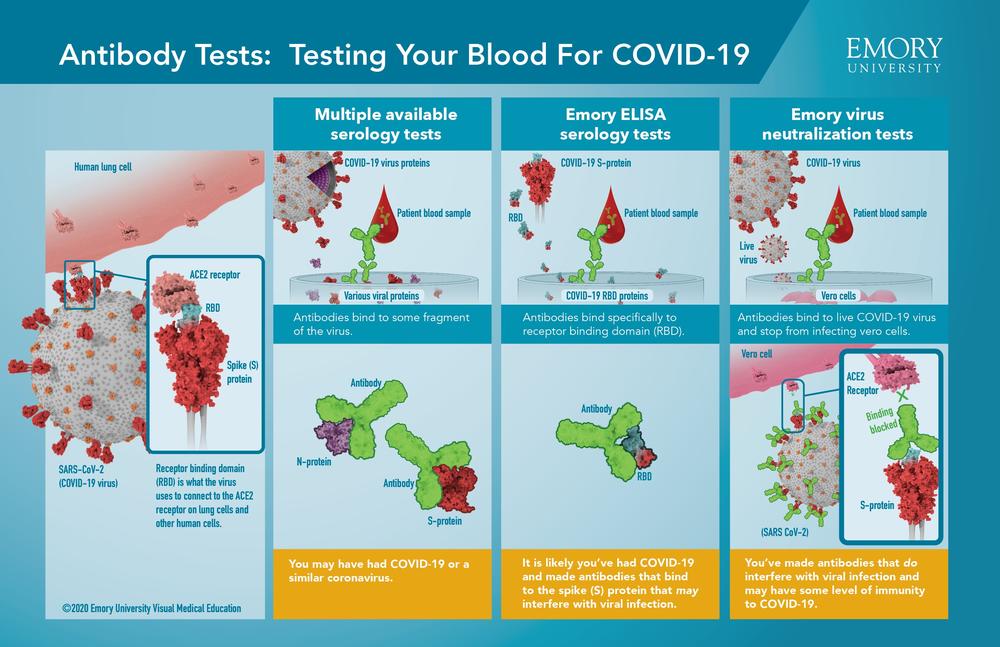Section Branding
Header Content
Emory’s Antibody Study Sheds Light On COVID-19 Immunity
Primary Content
Patients with COVID-19 start developing "virus-neutralizing" antibodies within six days of testing positive, researchers say.
This means donated plasma from survivors might save lives, Dr. Mehul Suthar with Emory University School of Medicine said.Emory University says researchers now know COVID-19 patients produce antibodies within six days of diagnosis. GPB’s Ellen Eldridge has more about what this means in the fight against coronavirus.
“These findings have important implications for our understanding of protective immunity against SARS-CoV-2, the use of immune plasma as a therapy, and the development of much-needed vaccines,” Suthar said in a news release.
Antibodies are small proteins created by the immune system in the process of fighting off a disease and develop days after a person has been infected and can potentially help a person build immunity to protect against being re-infected.
The study’s co-lead author Jens Wrammert, PhD, assistant professor of pediatrics at Emory School of Medicine, said that the information about RBD-specific antibodies helps inform vaccine development since scientists could test the blood of vaccine study participants for the RBD-specific antibodies, as a gauge of predicted efficacy.
It also helps determine the potential best uses of convalescent plasma from the blood of people sickened with COVID-19.
RELATED:
- Atlanta Couple From Diamond Princess Donates Blood For Coronavirus Vaccine, Cure
- 'It's An Honor' Says Local COVID-19 Vaccine Trial Participant
- Emory Develops Diagnostic Antibody Blood Test To Determine Antibody-Responses To COVID-19
In the study, researchers looked at antibodies against the receptor-binding domain, part of the spike protein on the outside of the virus. The RBD is what grips on to human cells and allows the virus to enter them. The researchers focused on antibodies against the RBD because the sequence of the RBD in SARS-CoV-2 distinguishes it from other coronaviruses that cause the common cold.
The initial 44 patient blood samples used in this study were from patients being treated for COVID-19 at Emory University Hospital and Emory University Hospital Midtown.


